Introduction & Analysis
This collection of open-source English-language news articles published over the past week highlights significant events and issues concerning Myanmar. They present a snapshot of the country's safety and security landscape.
Myanmar's severe civil war has displaced over 3.5 million people and is marked by the military junta's grave human rights abuses, including military airstrikes on civilian sites like schools and monasteries, the forced conscription of women, and systematic looting, with reports indicating ongoing attacks despite announced ceasefires.
The conflict has exacerbated a widespread humanitarian crisis with severe shortages of food, water, and medical supplies, alongside soaring prices and dwindling supplies in regions like Shan State due to import bans. Additionally, a pervasive problem of forced labor cyber scam operations, often run by Chinese crime syndicates, traps hundreds of thousands in dire conditions in border areas, contributing to economic instability and human suffering.
China exerts significant influence, openly supporting the junta by pressuring ethnic armed organizations (EAOs) like the MNDAA to return captured territories, restricting essential goods, and providing military aid and surveillance technology, while simultaneously remaining conspicuously silent on the junta's brutal atrocities.
This geopolitical dynamic exacerbates the fragmented nature of anti-regime forces, where EAOs, often adhering to a "right of conquest" mindset, engage in inter-ethnic territorial disputes and struggle to form a unified front against the military junta, further complicating the efforts of the National Unity Government (NUG).
Conflict
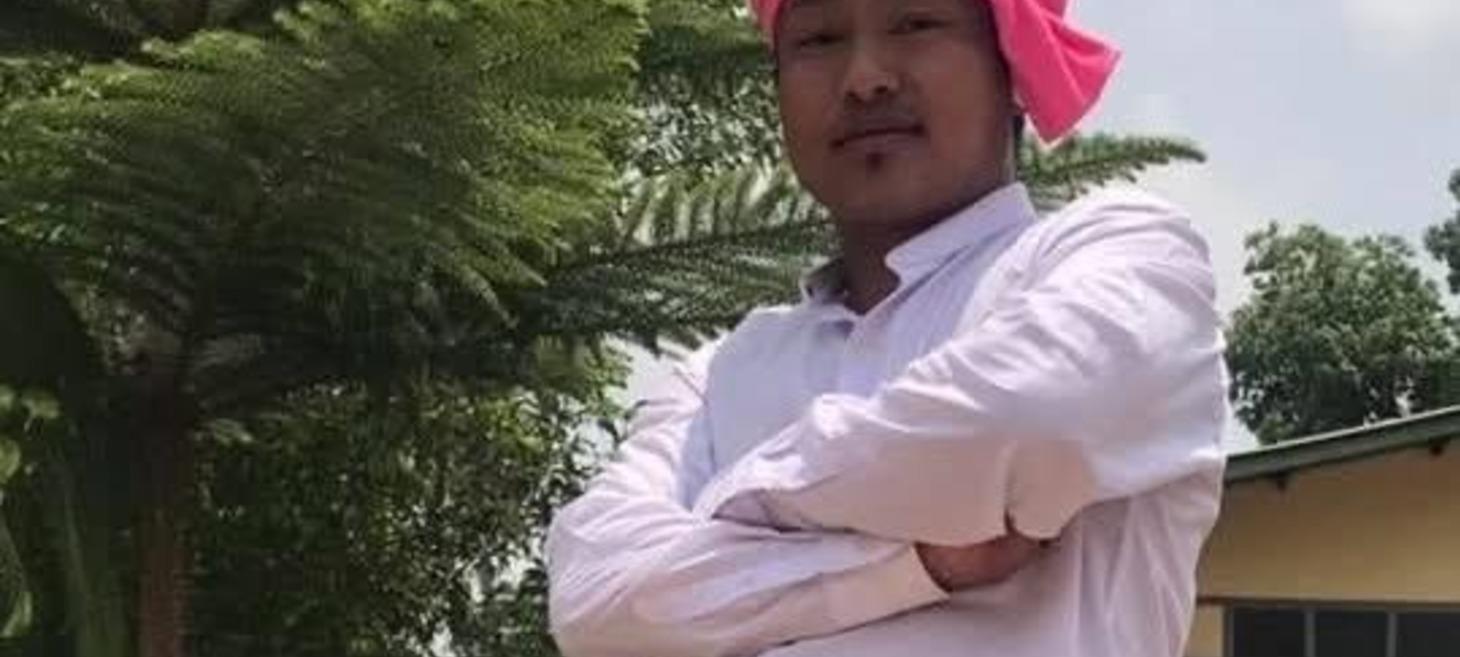
‘We have no reason to give the town back’—DPLA leader Tun Tun Naing
The article focuses on the ongoing conflict for control of Nawnghkio, a key town in northern Shan State, Myanmar, which the Ta’ang National Liberation Army (TNLA) and its allies, including the Danu People’s Liberation Army (DPLA), seized nearly a year ago. Myanmar’s military has intensified efforts to reclaim the town since late February 2025, reaching a nearby village before being pushed back by the allied forces. Despite these efforts, DPLA leader Tun Tun Naing stated the allied forces are determined to hold onto Nawnghkio, emphasizing their resolve with the sentiment, "We have no reason to give the town back".
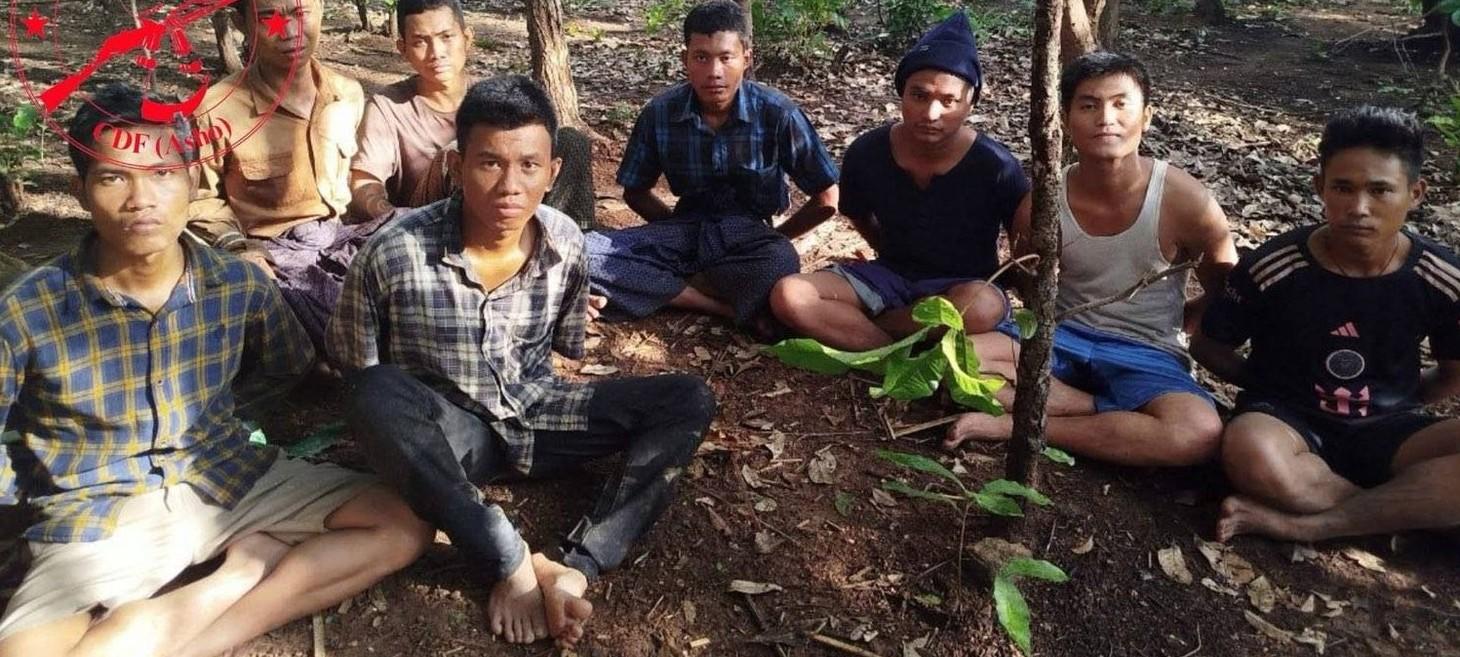
Resistance forces capture 23 Myanmar junta troops near Magway-Rakhine border
The Chin Defence Force-Asho (CDF-Asho) captured at least 23 Myanmar junta soldiers in Magway Region’s Ngape Township, near the border with Rakhine State. These newly conscripted soldiers from Light Infantry Battalion 113 and 420 bases were taken prisoner as they fled the junta’s last remaining hilltop base in the area. This incident occurred amid intense and ongoing clashes in the region between anti-regime forces and the junta.
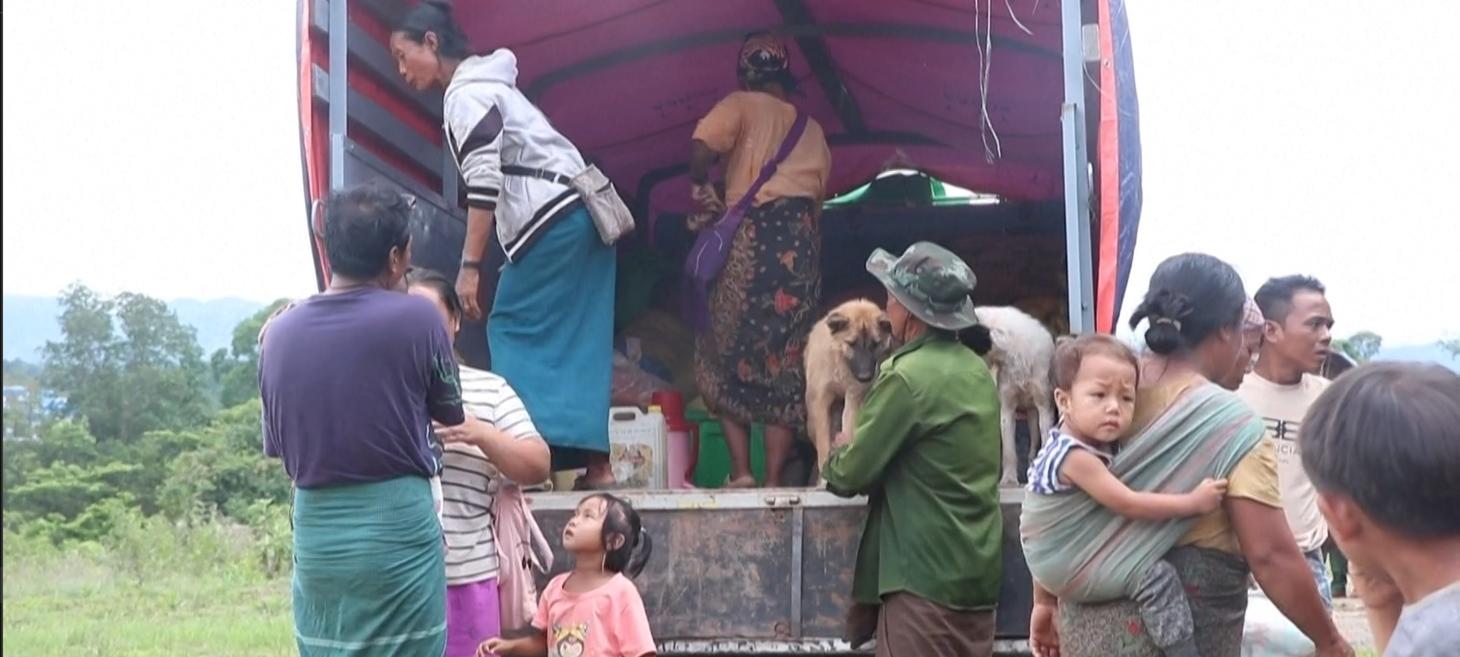
More than 600 flee Shan State village as Myanmar military fights anti-junta forces
Hundreds of families, numbering over 600, were evacuated from Saung Nang Khae village near the Moebye Reservoir in Pekhon Township, southern Shan State, due to heavy combat between the Myanmar military and anti-junta fighters. The Kayan New Land Party, an anti-junta group, was involved in organizing the evacuation to temporary shelter in BC Kone village, approximately 60 kilometers southwest. This displacement is part of a larger, ongoing civil war in Myanmar that began after the 2021 military coup, which has resulted in over 3.5 million people being displaced nationwide.
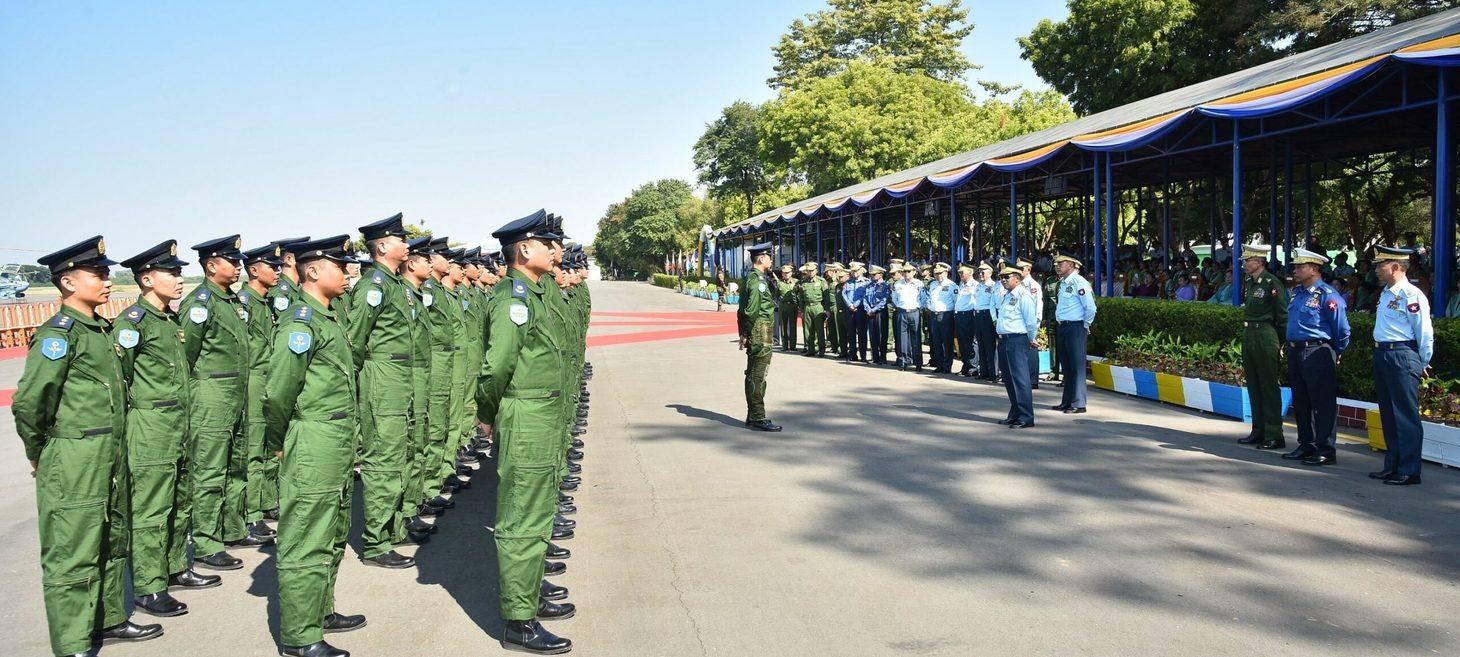
Myanmar villages in Magway Region terrorised by junta looting, airstrikes
Regime troops recently looted civilian houses and raided a local market in Kamma village, Pakokku Township, Magway Region, after being forced to retreat by resistance forces attempting to advance towards Pauk. The junta's air force also carried out bombing raids in the area, resulting in at least one civilian death in Son Kone village on June 9, despite the absence of recent fighting there. Further aerial bombings occurred between June 6 and June 10 on the Pauk-Kamma road, near Gyoe Pyan and Ma Gyi Thone Pin villages, following fighting.
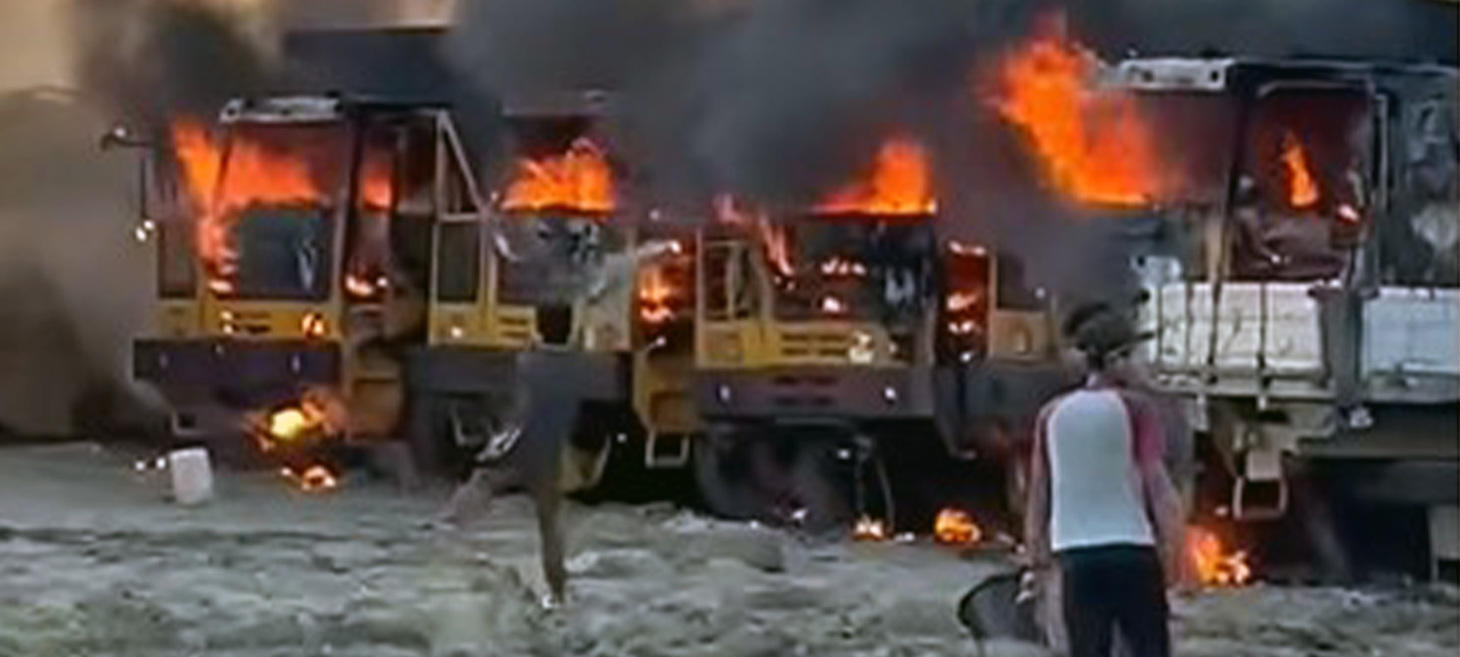
Myanmar Jade Hub Burns as Junta Counteroffensive Penetrates Hpakant
Junta forces are launching a counteroffensive to reclaim control of Hpakant Township, Myanmar's jade hub, which has been encircled by the Kachin Independence Army (KIA) and allied Kachin People’s Defense Force for the past year. During this offensive, junta troops are torching mines, heavy machinery, and staff accommodation, raiding villages, and have used drone attacks, one of which killed nine civilians. The escalating conflict has led to terrified residents, closed markets, surging food prices, scarcity of essential goods like medicines and fuel, and difficulty fleeing due to blocked roads and extortion.
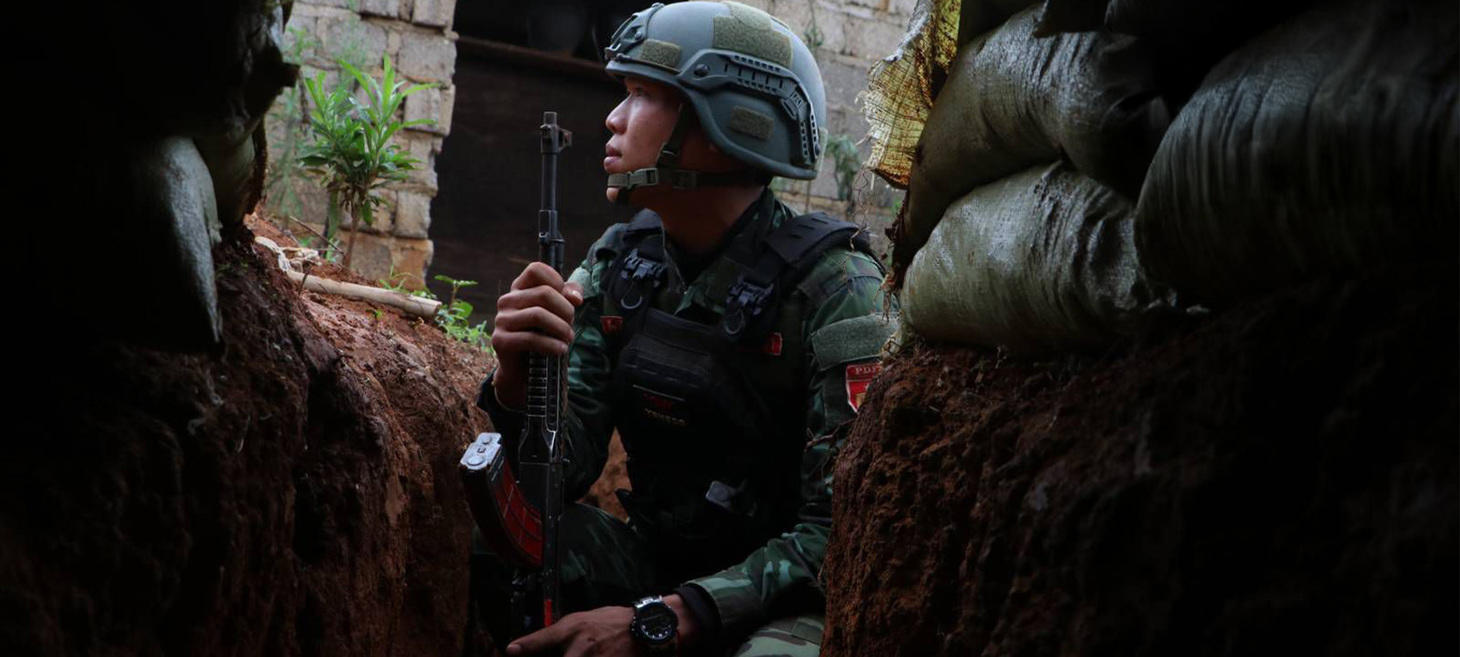
Myanmar Junta Advances into Karenni State
Myanmar’s junta has reportedly deployed around 2,000 troops and allied Pa-O National Organization (PNO) troops to the Shan-Karenni border, pushing into villages east of Pekon lake to secure the Karenni capital, Loikaw, for a planned December election. The Karenni Nationalities Defence Force (KNDF) and People’s Defence Force (PDF) are countering these advances, having previously controlled key routes like the Loikaw-Moebye road and briefly holding significant parts of Loikaw in November 2023. Currently, heavy fighting continues in and around Moebye town, with the junta employing sophisticated technology including precision artillery and drones, which is causing significant daily casualties and leading to ammunition shortages for resistance forces.
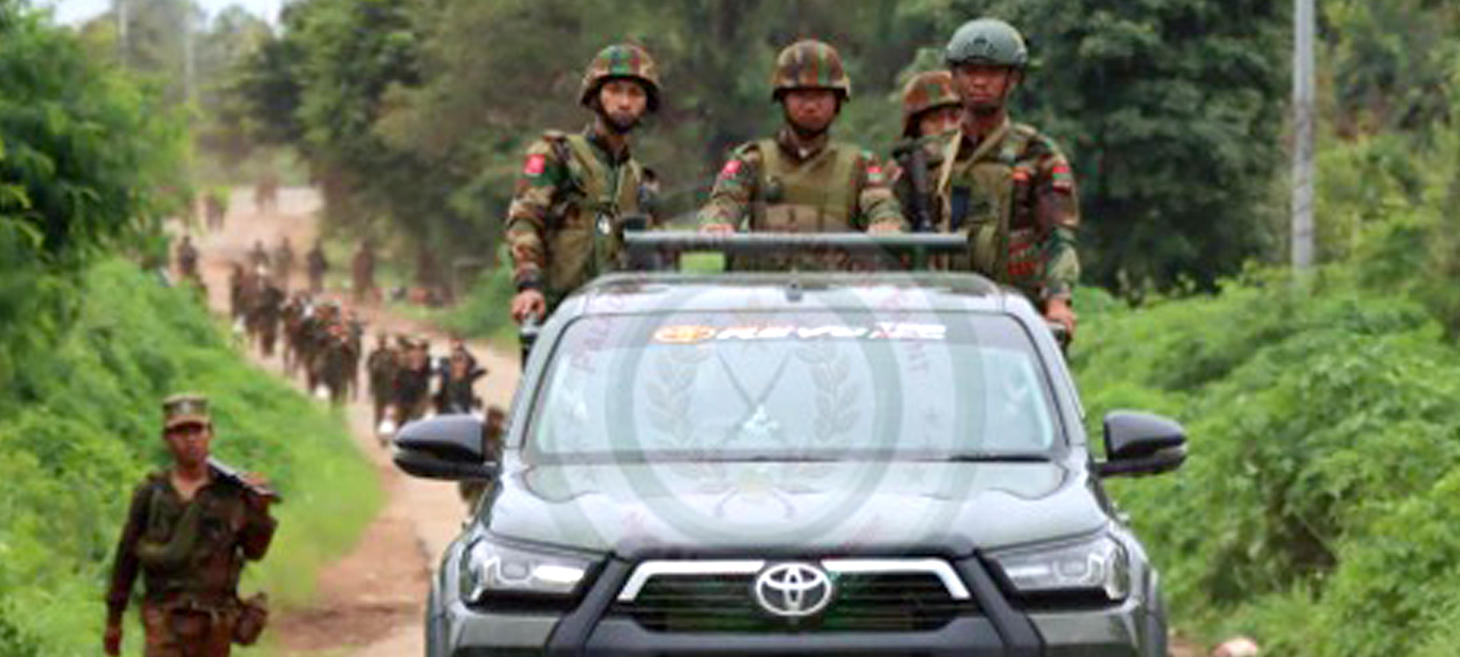
Is TNLA, Under Chinese Pressure, Conceding Northern Shan Gateway to the Regime?
Nawnghkio Town is a strategically vital gateway connecting Mandalay and southern Shan State to northern Shan State, located on the main trade route between Myanmar and China, which the Ta’ang National Liberation Army (TNLA) and allied resistance groups seized during Phase 2 of Operation 1027. Despite their earlier successes, the TNLA and fellow Brotherhood Alliance members like the MNDAA have been forced to slow operations due to intense pressure from the Chinese government, which has closed border gates and brokered peace talks where the regime demanded the return of liberated towns. This Chinese pressure, coupled with a Brotherhood Alliance-declared earthquake truce, has led to concerns among residents and analysts that the TNLA might be conceding Nawnghkio to the advancing regime forces, although the TNLA maintains it is planning for the town's safety and has resumed defensive operations with offensive characteristics.
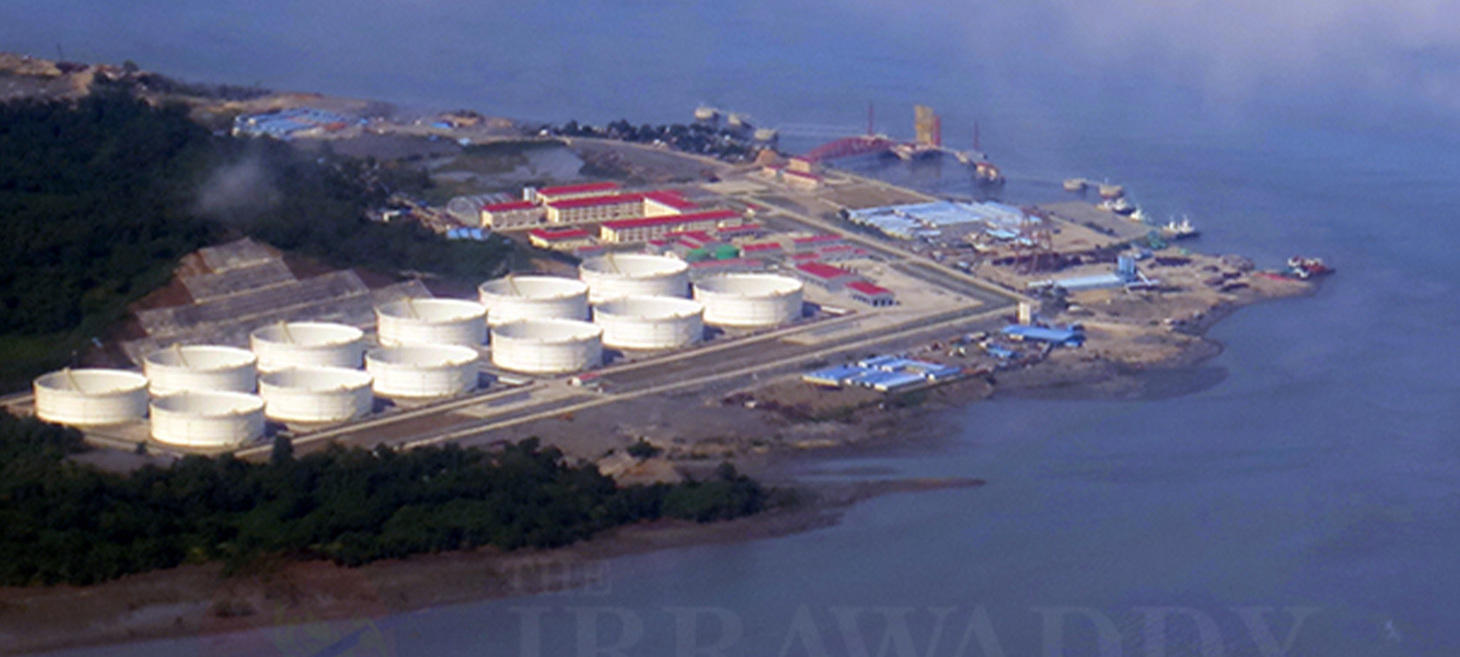
Myanmar Junta Reinforces Kyaukphyu as AA Nears China-Backed SEZ Hub
The Arakan Army (AA) has advanced to within 5 kilometers of Kyaukphyu, a strategically vital Chinese investment hub and one of the last towns in Rakhine State under Myanmar junta control. The junta is reinforcing its defenses, deploying air assets and naval shelling, and fortifying Chinese-backed projects, while the AA claims China is supplying drone technology and expertise to the junta. This ongoing conflict has displaced over 40,000 people in Kyaukphyu Township, creating a humanitarian crisis as the AA attempts to seize all remaining junta-held towns in Rakhine State.
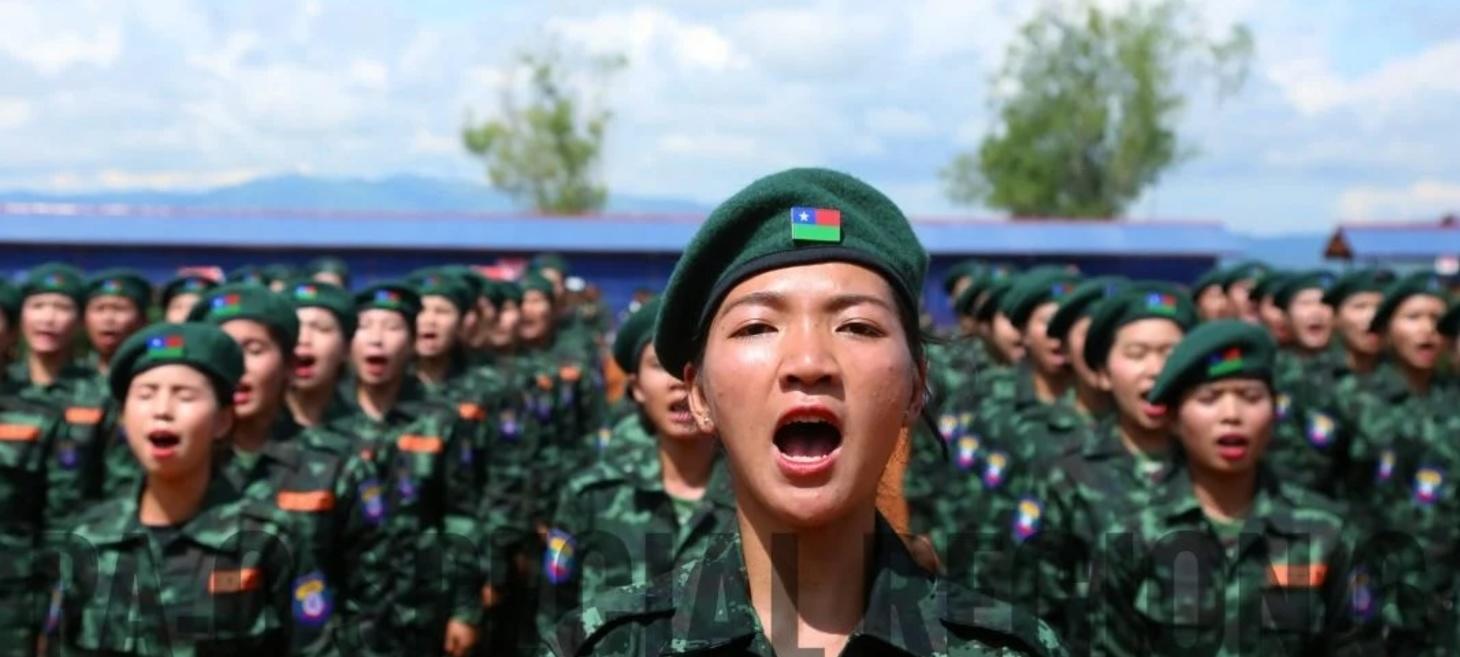
Thousands Displaced by Intensifying Clashes in Southern Shan State
Intensified fighting involving the military, the Pa-O National Organization (PNO) militia, and revolutionary forces has displaced thousands of civilians across 13 villages in southern Shan State, Myanmar, since June 2, particularly affecting eastern Pai Khun (Pekon) Township and areas near Mong Pai (Mobye). Displaced families, including women and children, are seeking refuge in crowded monasteries, makeshift shelters, or forests, facing severe shortages of food, clean water, and medical supplies, which has led to a deepening humanitarian crisis. Aid organizations are stressing the urgent need for immediate intervention, including food, shelter, and medical assistance, to support the affected communities and prevent further vulnerability to hunger, exposure, and violence.
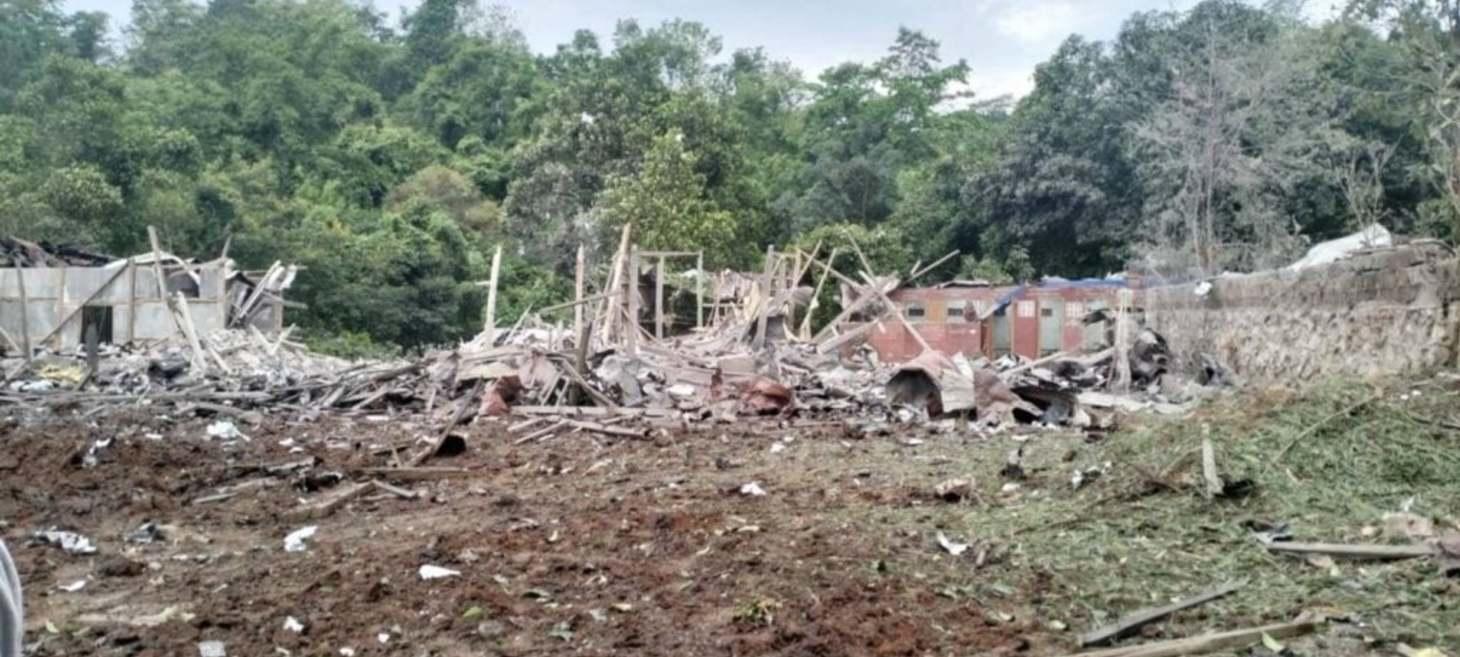
Airstrike Hits Civilian Sites in Shan State Without Fighting
On June 12, 2025, Myanmar military aircraft conducted an airstrike in Manli Village, Namtu Township, northern Shan State, dropping two 500-pound bombs near a school and a monastery. This attack occurred despite no reported fighting or military presence in the area, causing widespread panic, damage to community structures, and displacing many villagers, and is at least the third such attack on Manli, with a prior bombing killing a teacher. In response, humanitarian groups and community leaders are calling for an immediate independent investigation and stronger measures to protect civilians.
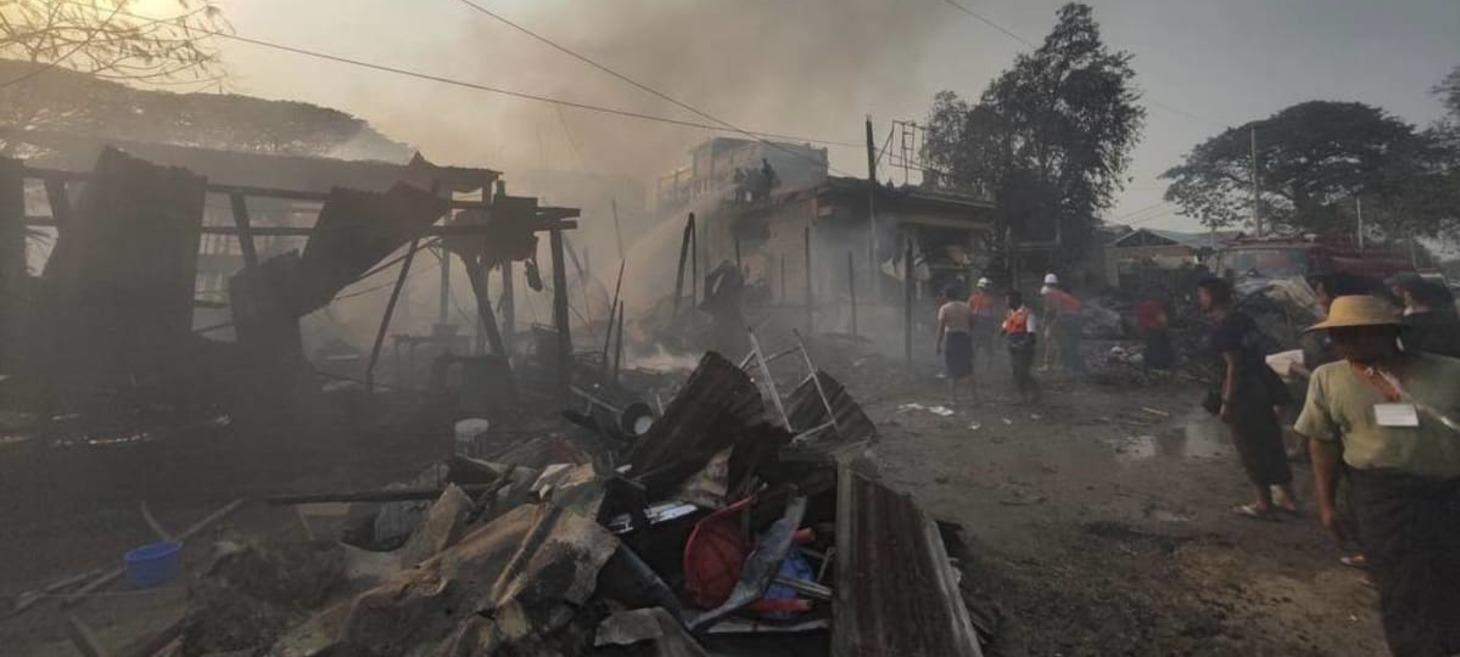
Over 600 evacuated as Myanmar military fights anti-coup forces
Over 600 people were evacuated from the eastern state of Shan in Myanmar over a recent weekend, escaping heavy fighting between the military and anti-coup guerrillas, with community organizers estimating that over 1,500 villagers were moved to safe shelters by various organizations. This comes as Myanmar has been consumed by a many-sided civil war since a 2021 military coup, leading to the displacement of over 3.5 million people according to UN figures. Civilians like Anyne Zel and Lone Phaw are forced to repeatedly flee their homes, abandoning belongings due to artillery and air strikes, despite a pledged truce between the military and some adversaries.
Conscription
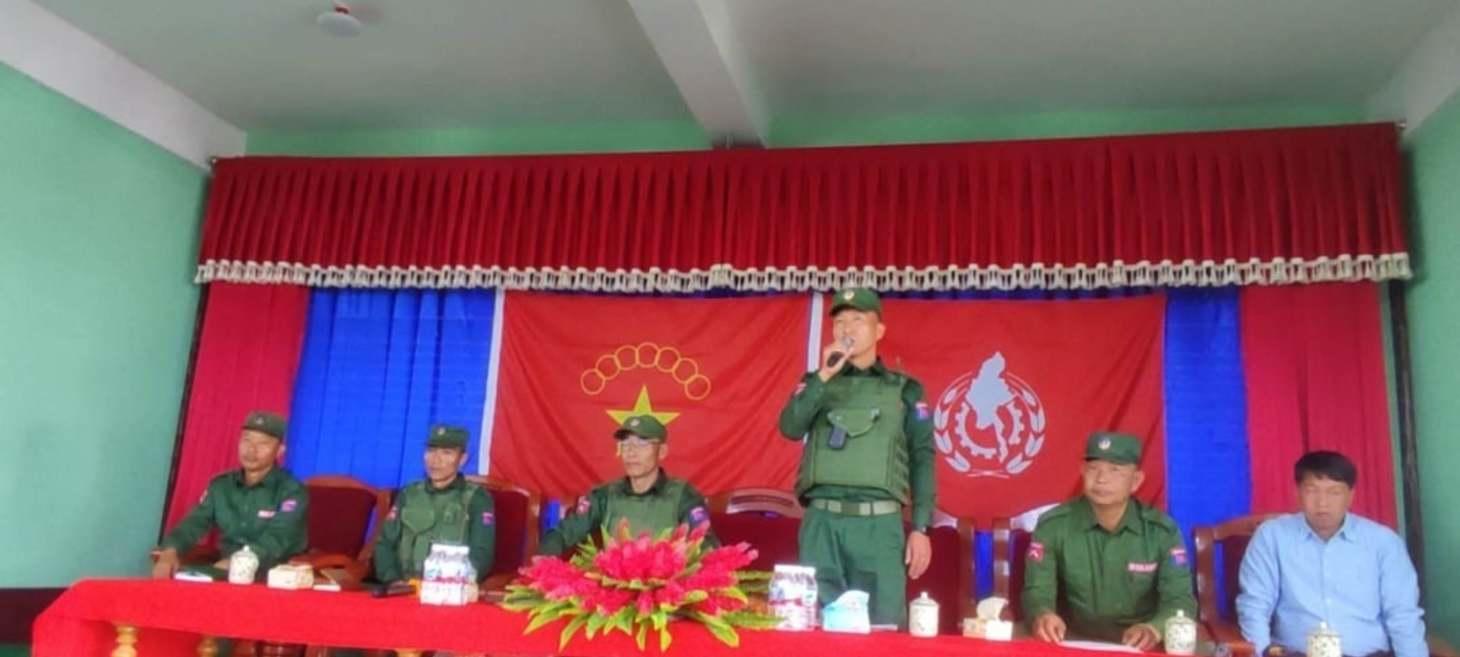
Forced Conscription of Women in Hsenwi Alarms Locals and Rights Groups
The Myanmar National Democratic Alliance Army (MNDAA) has initiated the forced recruitment of women in Hsenwi Township, northern Shan State, for a new local police force, marking an unprecedented and alarming development for residents. This move has caused widespread fear among locals, with many women untrained for such roles and terrified of potential combat deployment, leading some to flee their homes. Human rights organizations are urgently calling for international attention to prevent the forced enlistment of civilians, especially women, and to ensure the protection of vulnerable populations in the conflict-affected area.
Crime & Narcotics

I was tricked, tortured, finally freed: inside a Burmese scam farm
Mustapha Momoh, a sports teacher from Sierra Leone, was tricked and trafficked to Myanmar, where he was tortured and forced to work in a scam farm, coercing Westerners into fake investment schemes. These scam farms, run by Chinese crime gangs, traffic an estimated 375,000 people and generate approximately £50 billion annually by preying on vulnerable individuals through online romance and fraudulent investment pitches. Despite crackdowns, these syndicates remain a global threat due to their wealth, connections, and ability to adapt, leaving countless victims, both scammers and those conned, with severe financial and psychological trauma.
Economy
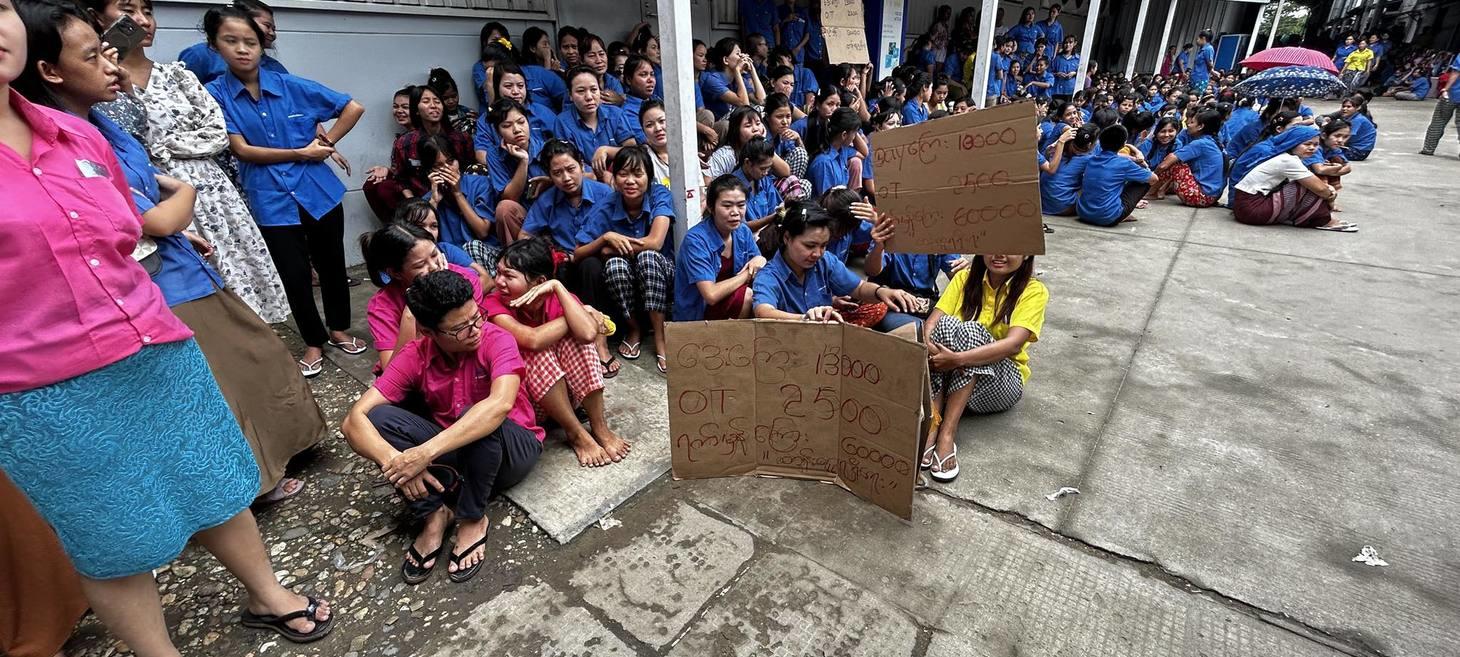
Yangon factory workers protest to demand higher wages
Workers from at least 10 factories in Yangon are protesting to demand higher wages because rapidly rising living expenses have outpaced wages since the military seized power over four years ago, with prices increasing dramatically in the wake of the Covid-19 pandemic and subsequent military coup. The demonstrations began on May 15, when approximately 6,000 employees of the Tsang Yih shoe factory, which manufactures for Adidas, went on strike. After three more protests, the Taiwanese-owned company conceded to all workers' demands, raising their daily pay to 12,000 kyat, a significant increase from Myanmar's minimum wage of 4,800 kyat set in 2018.
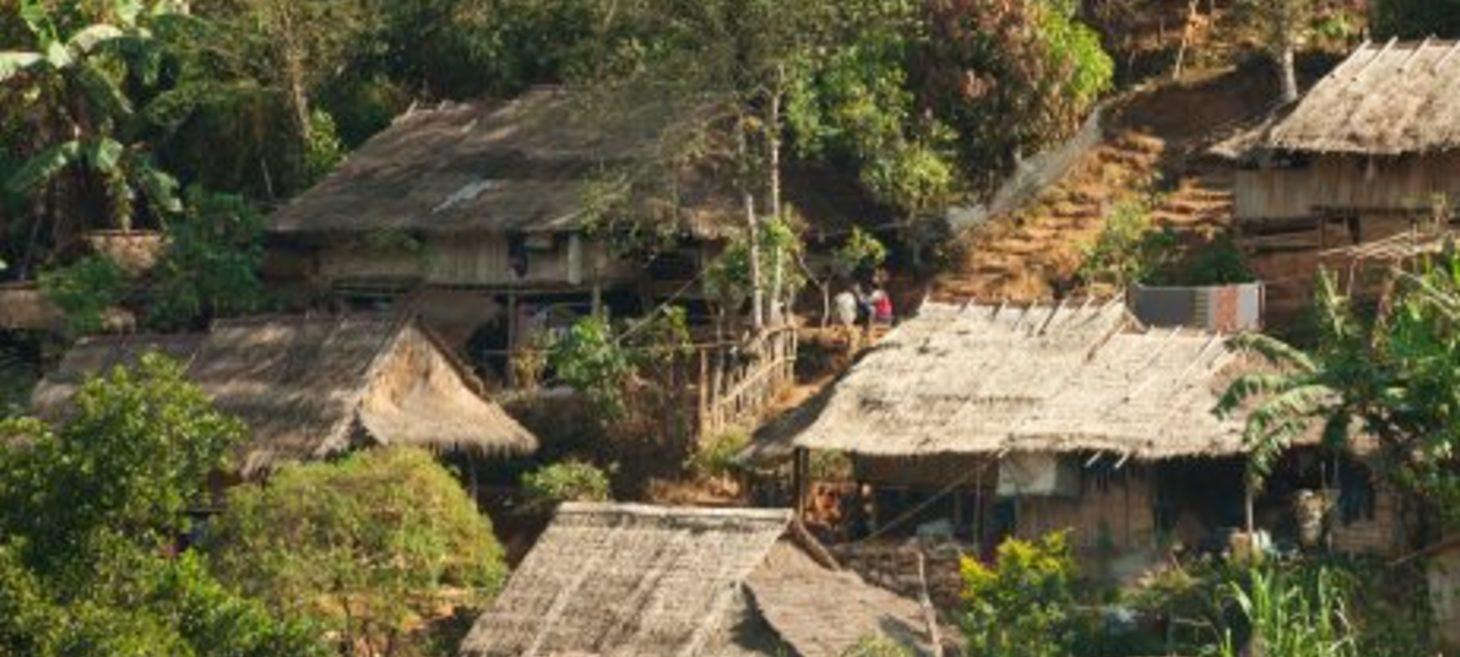
Myanmar’s Civil War Spawns a Rich Pool of Underpaid Garment Workers
Along the Thai-Myanmar border, hundreds of thousands of Myanmar refugees, many lacking proper documentation, are compelled to work in garment, shoe, and leather goods factories for major international brands, often receiving significantly below the minimum wage and enduring deplorable conditions. Thai officials reportedly ignore worker complaints, and successful prosecutions for labor violations are uncommon, creating an environment where factory owners can continually lower costs due to the absence of the rule of law. Trade unions and civil society groups are urging the upcoming EU-Thailand Free Trade Agreement (FTA) negotiations to incorporate worker rights, International Labour Organization conventions, and accountability mechanisms for companies producing for the EU market, viewing these as potential prerequisites for finalizing the agreement.
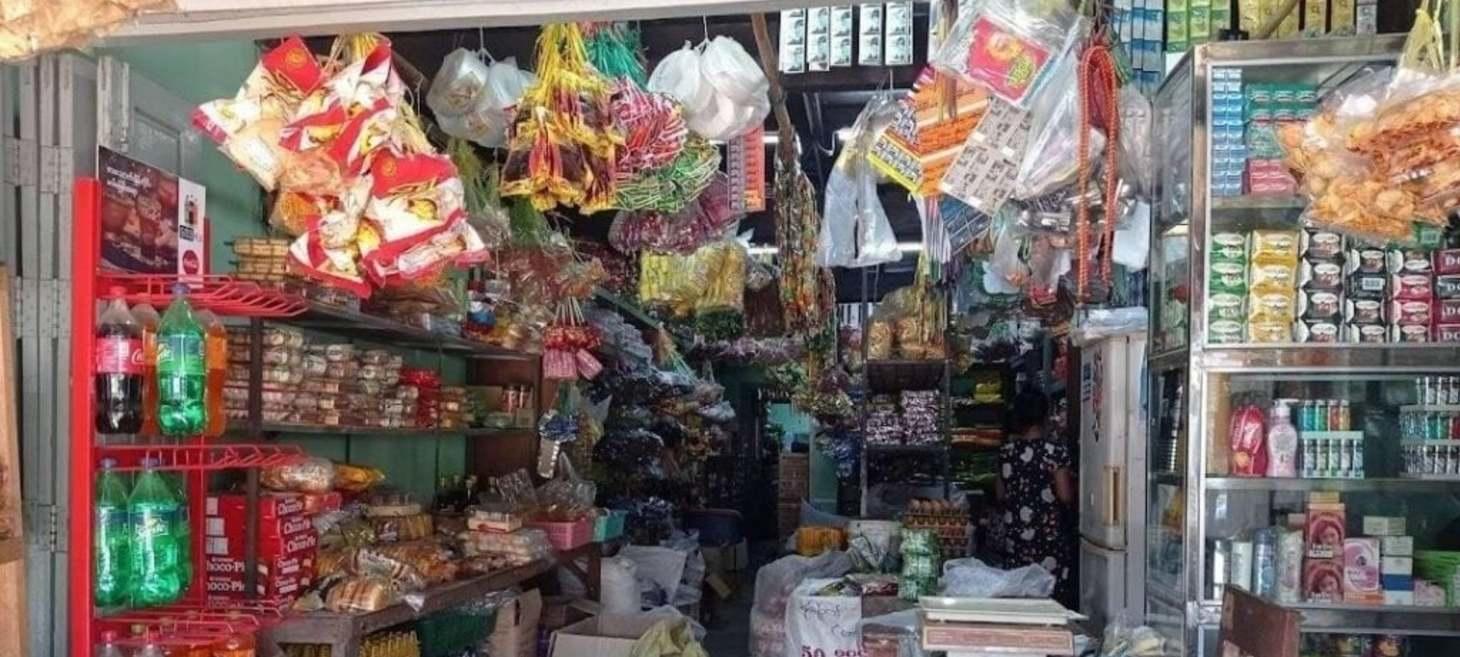
Thai Import Ban Triggers Sharp Price Hikes in Shan State
A recent Thai import ban has triggered sharp price hikes and dwindling supplies in Shan State, Myanmar, leading to significant economic hardship for local communities and businesses. Essential goods, once affordable, have either vanished or become prohibitively expensive, with examples like instant noodles and shampoo seeing prices more than double. Authorities in Tachileik and neighboring townships have intensified border controls, driving up transportation costs and exacerbating the crisis, prompting calls for immediate relief and a reassessment of the ban.
Education

How Exiled Academics Are Strengthening Myanmar’s Revolution
Following the 2021 military coup in Myanmar, many academics went into exile and have continued to engage in teaching, research, and collaborative initiatives to build solidarity and resistance, creating alternative learning spaces amidst the repression and dismantling of the country's education system. A prominent example is Spring University Myanmar (SUM), an online higher education initiative founded in 2021 that operates 12 virtual schools with over 200 educators, delivering more than 520 online courses to over 17,000 students, with a mission to support a generation navigating life and resistance under authoritarian rule and promote a new federal democratic union. Despite its innovative approaches, like the SUM Box for offline learning and partnerships for global reach, these initiatives face significant challenges including structural inequalities, electricity outages, high data costs, lack of formal accreditation, and a crucial need for sustained international funding and recognition.
Ethnic Issues
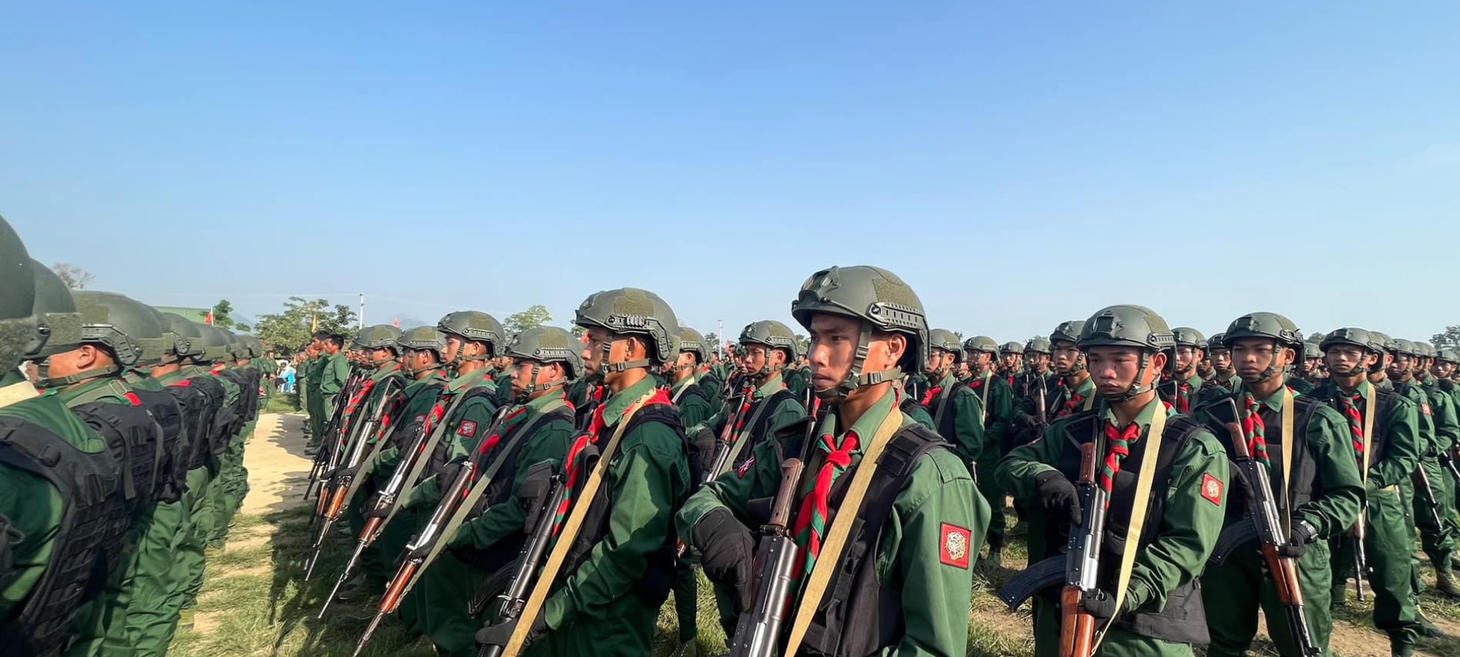
Shan State Army: Illicit Networks and Armed Power
The Shan State Army (SSA), a significant ethnic armed organization in Myanmar's Shan State, was formed in 1964 from various resistance groups and operates in a region historically associated with poppy and heroin production. It later split into the Shan State Army-North (SSA-N), led by General Sao Pang Fa, known for its hardline stance, and the Shan State Army-South (SSA-S), or Restoration Council of Shan State (RCSS), which was led by General Yawd Serk and signed a ceasefire but now faces criticism for its ambiguous stance following the 2021 military coup. The SSA relies on locally produced weapons like the Yat-Thai rifle, and its operations are deeply intertwined with the drug trade, as Shan State remains the primary hub for opium poppy cultivation in Myanmar, with profits funding conflicts and upholding informal political deals.
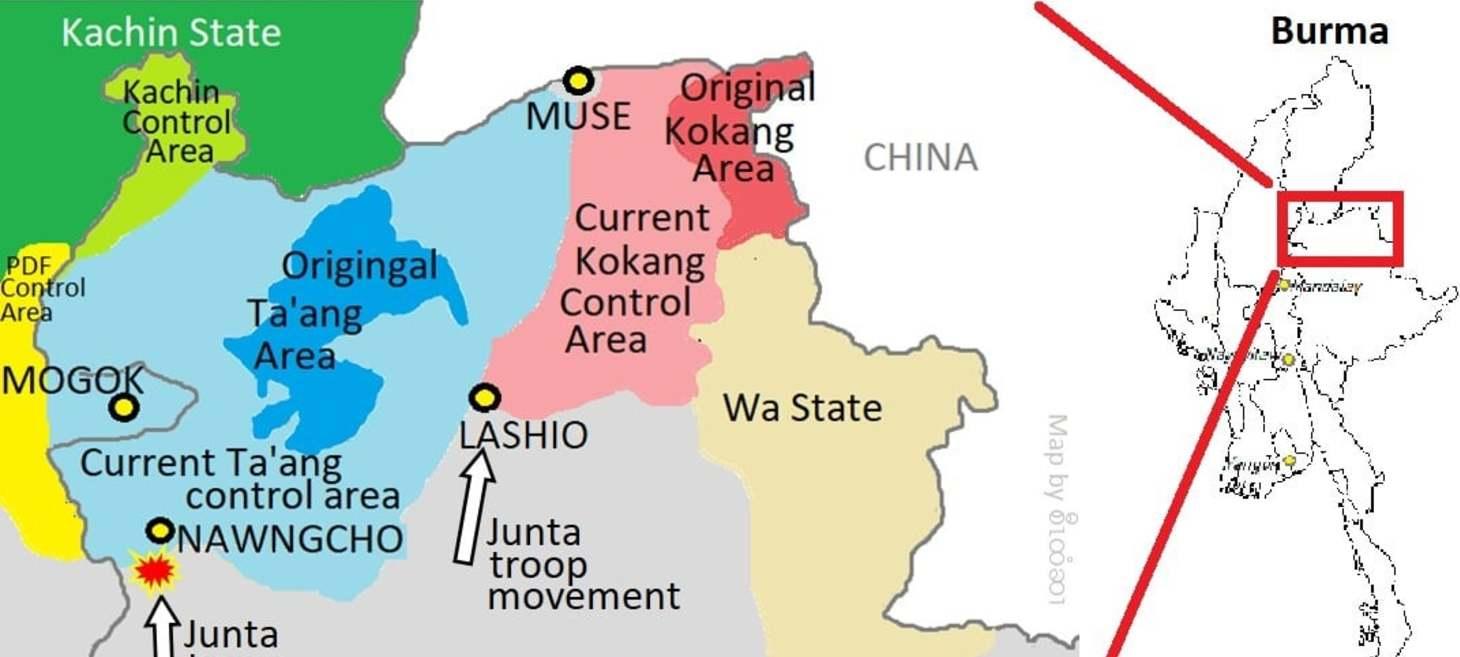
CONQUERED TERRITORIAL OWNERSHIP CONTROVERSY: The case of TNLA and MNDAA
The article discuss the "CONQUERED TERRITORIAL OWNERSHIP CONTROVERSY" in Myanmar, specifically focusing on the actions of the Ta’ang National Liberation Army (TNLA) and the Myanmar National Democratic Alliance Army (MNDAA). These groups, part of the Three Brotherhood Alliance (3BHA), have significantly expanded their territorial claims in northern Shan State after military victories, particularly following Operation 1027, based on the concept that militarily won territories can be owned by the conquering party. This mindset is considered problematic as it contradicts post-World War II international norms regarding territorial integrity and is identified as the main driver of escalating inter-ethnic conflict and tension in Shan State, leading to friction with other ethnic armed organizations (EAOs) like the Shan State Progress Party (SSPP) and the Kachin Independence Army (KIA).
Foreign Affairs
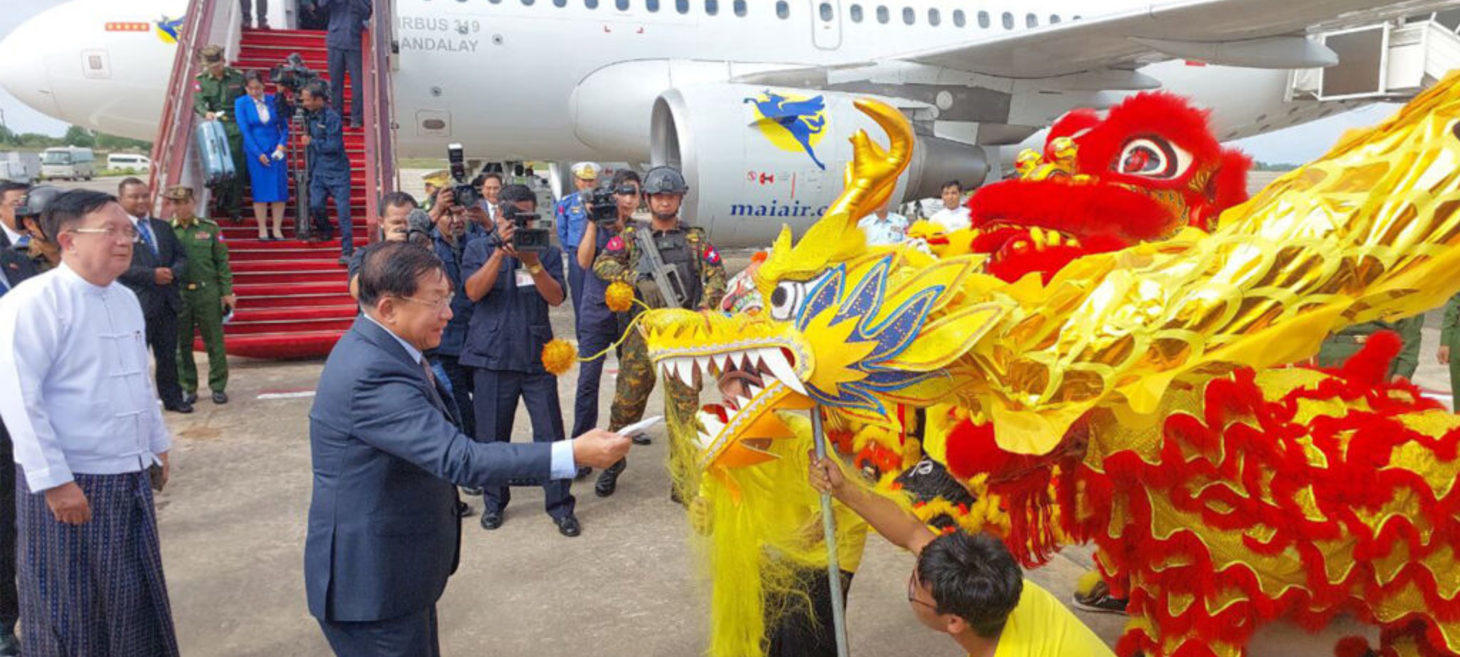
China’s Bet on Myanmar Junta Risks Backfiring
China has significantly interfered in Myanmar's internal affairs, actively propping up the military junta with financial and military aid and pressuring ethnic armed organizations (EAOs) to cease offensives and return territory, despite being fully aware of the junta's brutal actions. This overt involvement stems from China's geopolitical, economic, and military interests, particularly its concern about a potential geopolitical vacuum and threats to its Belt and Road Initiative projects should the junta collapse. However, this strategy risks backfiring as it supports a widely detested regime, deepens resistance, and misjudges the complex political realities and the strong resolve of Myanmar's people and resistance forces, potentially entrenching conflict rather than stabilizing the country.
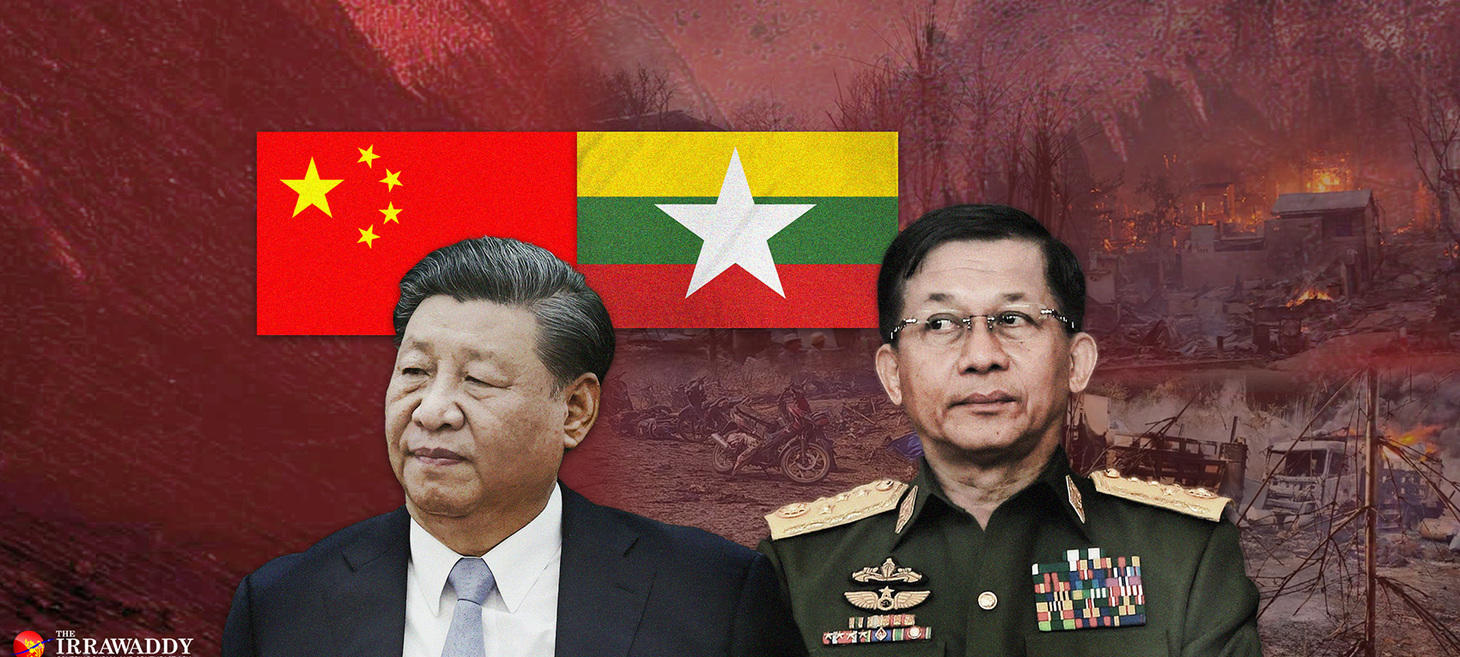
China Defends Myanmar Junta on Human Rights at UN
At a United Nations General Assembly session, China's envoy Sun Lei expressed opposition to the "politicization" of Myanmar's human rights issues, advocating instead for reduced tensions, dialogue, and supporting Myanmar's sovereignty and stability. Although a UN resolution called for addressing Rohingya rights and releasing political detainees, China formally dissociated itself from the consensus adoption, reaffirming its commitment to playing a "constructive role" and backing ASEAN mediation. Despite China's claims of promoting peace, it faces growing criticism from anti-regime activists and netizens for allegedly pressuring ethnic armed groups to cease fighting or return territory to the junta, and the UN's special envoy warned that the junta's proposed election, backed by China, could further fuel instability.
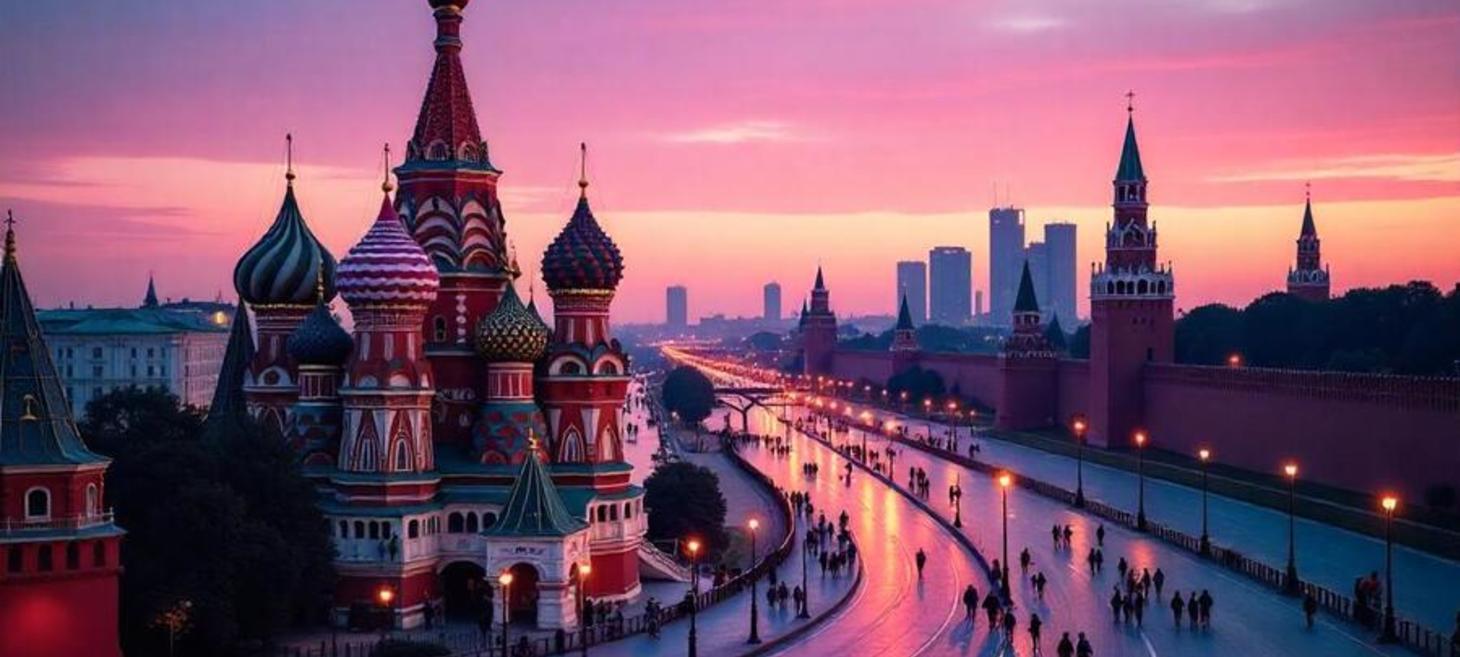
Russia And Myanmar Forge New Path With Proposed Visa-Free Travel Agreement
Russia and Myanmar are exploring a mutual visa-free travel agreement, an initiative designed to significantly boost tourism and foster stronger economic and cultural ties between the two nations. This proposed agreement would allow citizens of both countries to travel freely without visas, opening opportunities for increased tourism, investment, and bilateral cooperation. Key discussions included organizing Familiarization Trips (FAM Trips) and mutual participation in tourism exhibitions to promote both countries, as well as encouraging Russian investment in Myanmar’s tourism and hotel industries.
Governance & Rule of Law
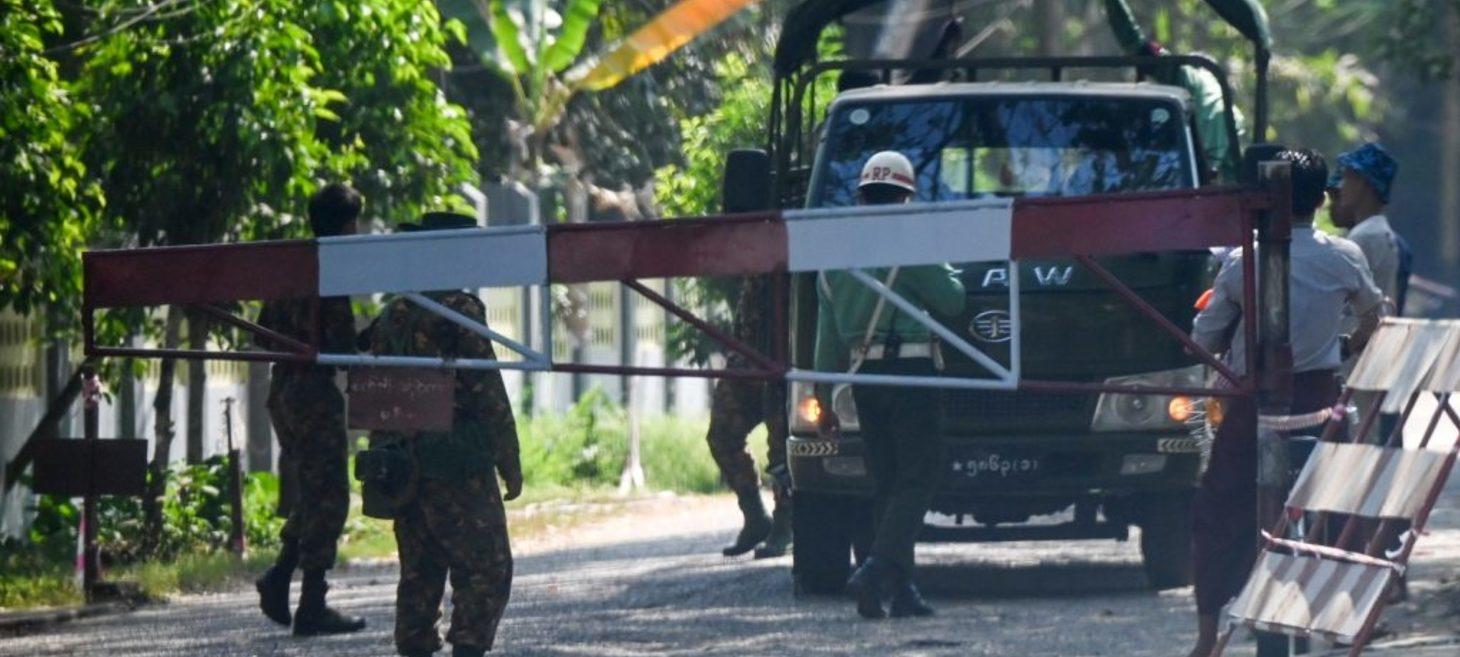
Electronic oppression: The junta sharpens its instruments of control
The Myanmar junta is significantly enhancing its control through advanced electronic surveillance at checkpoints, passport offices, airports, and other locations, leading to a wave of arrests of dissidents and fostering a climate of fear. This heightened control is enabled by a centralized digital national database, compiled since 2022, which includes biometric data and marks individuals wanted for arrest, allowing officials to screen people on the spot using tablets. The system, nicknamed the "fugitive arrest machine," has led to thousands of arrests of various individuals including CDM members, alleged deserters, and those accused of "financing terrorism," while also creating new avenues for brokers and highlighting persistent issues like data inaccuracies and bribery.
Healthcare
![Myanmar: Violence Against Health Care in Conflict 2024 [EN/MY]](https://dxj7eshgz03ln.cloudfront.net/production/link/image/1051497/twenty_by_nine_extra_large_605b1ec9-e9c9-4f75-888d-0e3c3ae5204d.png)
Myanmar: Violence Against Health Care in Conflict 2024 [EN/MY]
In 2024, assaults on healthcare in conflicts worldwide significantly increased to over 3,600 incidents, a 15% rise from 2023, encompassing air strikes, shelling, shootings, looting, and the arrest and detention of health workers, which resulted in terror, trauma, injury, destruction, and death. While more than 1,300 attacks occurred in Gaza and the West Bank, hundreds also took place in other conflicts, including over 1,500 in Myanmar since the 2021 military coup, close to 2,000 in Ukraine since 2022, and over 500 in Sudan since 2023. This escalating violence is further compounded by efforts from perpetrators to limit legal protections for healthcare and civilians in war, necessitating a shift from mere admonitions to centering accountability and demonstrating the political will to enforce humanitarian laws and stop the attacks.
Humanitarian
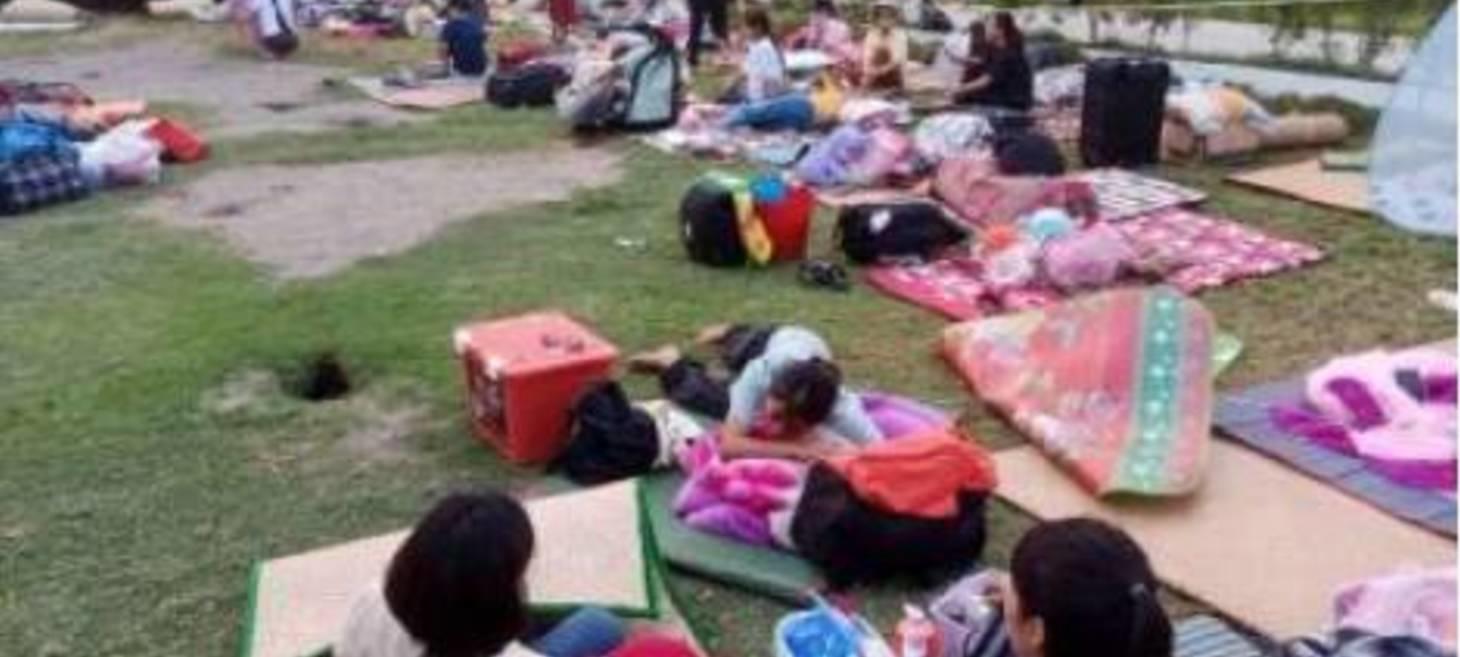
ASIA/MYANMAR
The humanitarian situation in Myanmar, particularly concerning internally displaced persons, is worsening day by day due to ongoing civil conflict, the 2021 military coup, and recent natural disasters like earthquakes and floods. The Catholic Diocese of Myitkyina, through its "Diocesan Relief Team" and organized parish camps, along with other religious communities and local associations, has been providing essential aid and spiritual comfort to thousands of displaced people since 2011, regardless of their faith. However, these efforts are insufficient given the constant influx of newly displaced people and already limited local capacities, leading Father Don Bosco Nlam Hkun Seng to urgently appeal for more volunteers, donations, and international organizational support.
Military
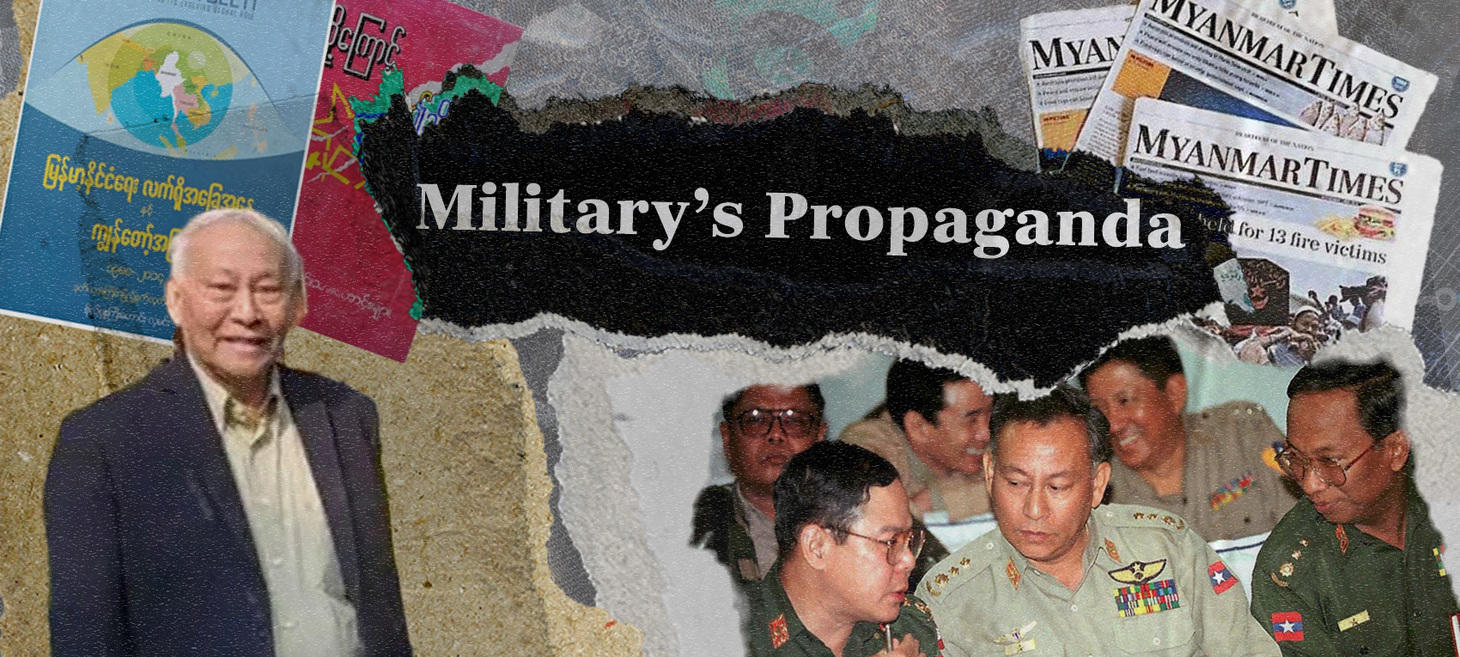
How the Myanmar Military’s Propaganda Efforts Have Evolved Over the Decades
The Myanmar military has a long history of evolving propaganda efforts, from early anti-communist campaigns after independence to sophisticated international image management. Key figures like Colonel Hla Min and General Khin Nyunt, along with military intelligence (MI), utilized various methods including books, radio dramas, publishing houses like Mya Yar Pin, and later, international PR firms and the establishment of bilingual newspapers such as Myanmar Times to shape narratives and counter critics. These efforts were designed to justify military rule, consolidate power, discredit opposition, and present a favorable image of the regime both domestically and internationally, often concealing the truth.
Politics
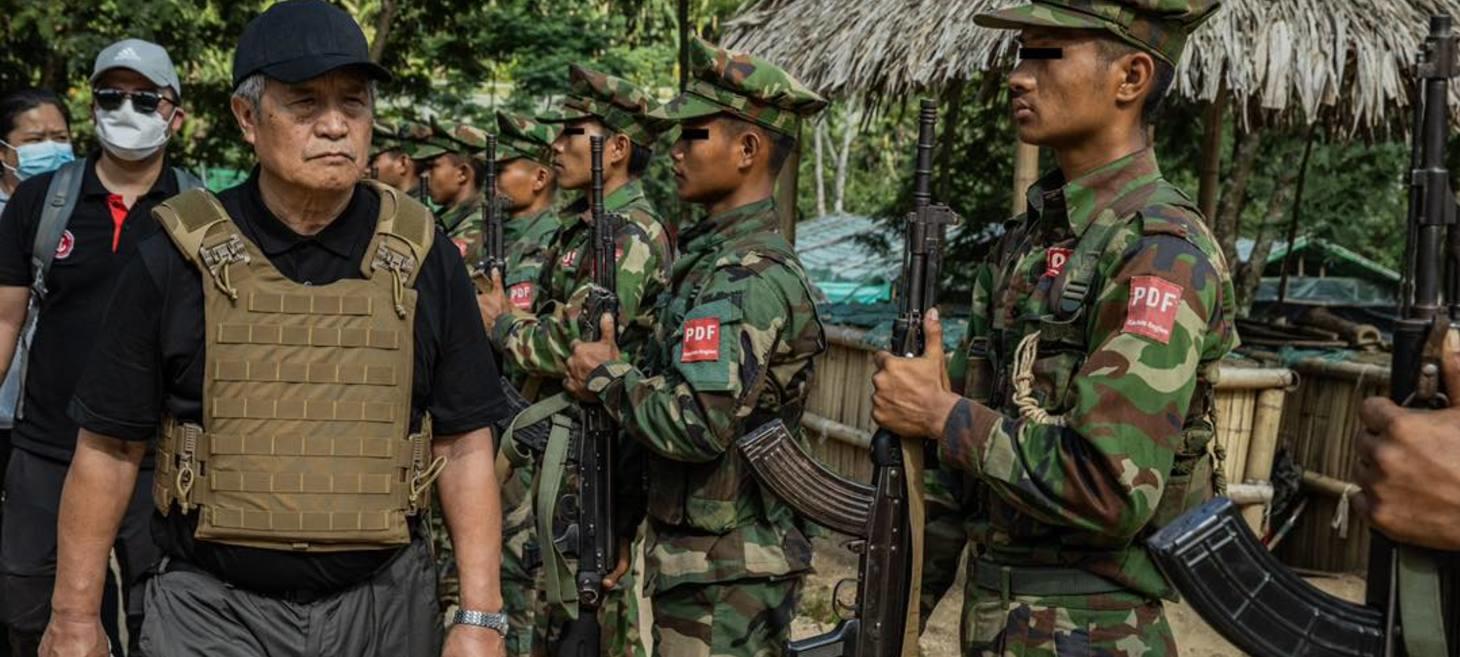
Myanmar’s National Unity Government Isn’t a Unity Government
Myanmar's National Unity Government (NUG), established by deposed lawmakers after the 2021 military coup, has largely failed at its primary task of being a unity government, instead coming to be seen as the successor to the National League for Democracy (NLD). This failure is primarily due to its close association with the NLD and the NLD's continued unwillingness to meaningfully share power with various ethnic armed groups, despite appointing some representatives. As a result, Myanmar is fragmenting into different local authorities as the military is pushed out, with no central resistance body, like the NUG, effectively bringing these diverse groups together.